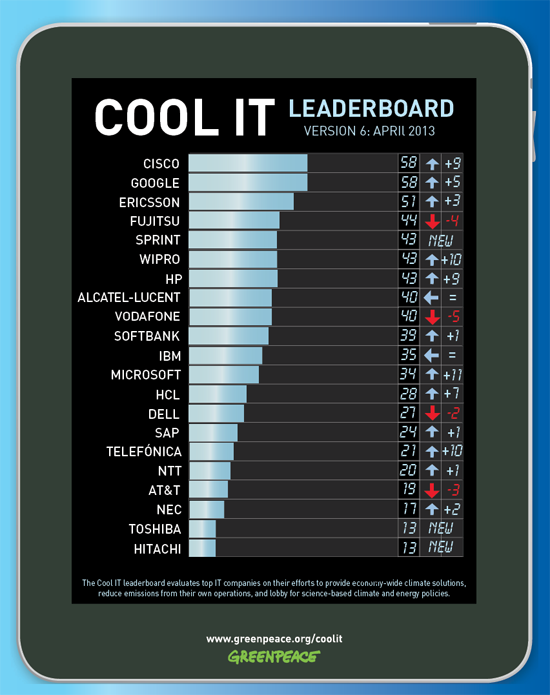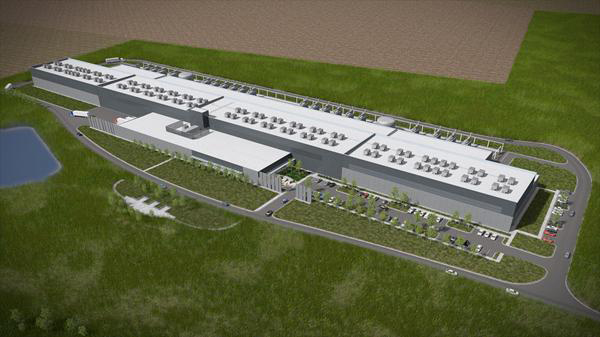Cisco and Google have both earned the top spot in the latest Cool IT Leaderboard from Greenpeace that ranks 21 global IT and telecom giants based on the innovative steps they are taking to provide energy solutions that address climate change.
Google also came first in last year’s rankings.
This is the sixth such leaderboard from Greenpeace since the environmental organisation launched its first one back in 2009.
Following on Google’s and Cisco’s heels, Ericsson came in at third place in the analysis, while Fujitsu was ranked fourth, and Sprint, Wipro and Hewlett-Packard all tied for fifth place.
Greenpeace has ranked 21 firms based on their progress in offering products and services that reduce energy demand, their management of their own energy footprints. and whether these companies use their influence to advocate for government policies that encourage the adoption of renewable energy and energy efficiency.

21 companies and how they ranked in the 2013 Greenpeace Cool IT Leaderboard
Three new companies make an appearance in the latest rankings – Hitachi, Sprint and Toshiba. Meanwhile, Greenpeace has dropped Oracle and TCS, which were included in last year’s leaderboard, due to their “significant decline in performance”.
As well as this, Apple, Facebook and Amazon were not included in the IT rankings because Greenpeace believes their operations are not broad enough to be compared to companies that offer energy solutions to climate change as core aspects of their business models.
Trends
According to Greenpeace, this year’s leaderboard shows that more companies are increasing their commitment to renewable energy.
However, Greenpeace said that companies are still punching below their political weight by not demanding a shift to energy policies that will unlock investment in smart grid and other IT clean energy solutions.
“The IT sector’s progress will continue to be blocked by large, dirty electric utilities until more companies embrace their political power and advocate for climate-friendly decentralised energy policies,” said Gary Cook, a senior IT analyst at Greenpeace.
Last week Google, for instance, announced its plans to expand its data centre in Lenoir, North Carolina. In tandem with this news, Google put pressure on the electricity utility Duke Energy, which has pledged to develop a new programme for large companies that want to buy renewable power for their operations.
Greenpeace said that its analysis also found signs of technology companies advocating for smarter energy policies at national level in the US, Japan and in India. It pointed to how Sprint, Wipro, and SoftBank have all prioritised policy changes to incentivise investment in energy efficiency and renewable energy.
And of all companies assessed, Microsoft has improved the most in the leaderboard. Greenpeace said this is because the software giant “finally used its considerable influence” in Washington to support an extension of wind energy tax incentives in the US.
While Facebook was not included in the evaluation, Greenpeace said that the company’s announcement yesterday that it is to build its next data centre in Altoona, Iowa, capitalising on wind-generated power there, is evidence of how forward-thinking technology companies can bring clean energy to the grid.
“We’re excited to have found a new home in Iowa, which has an abundance of wind-generated power,” said Jay Parikh, Facebook’s vice-president of infrastructure engineering, in a blog post yesterday. He said that when Altoona is completed by 2014 it will be among the most advanced and energy efficient data centre facilities of its kind.

Artist’s concept of the future Facebook data center in Altoona, Iowa. Image via Facebook
Main green computing image via Shutterstock